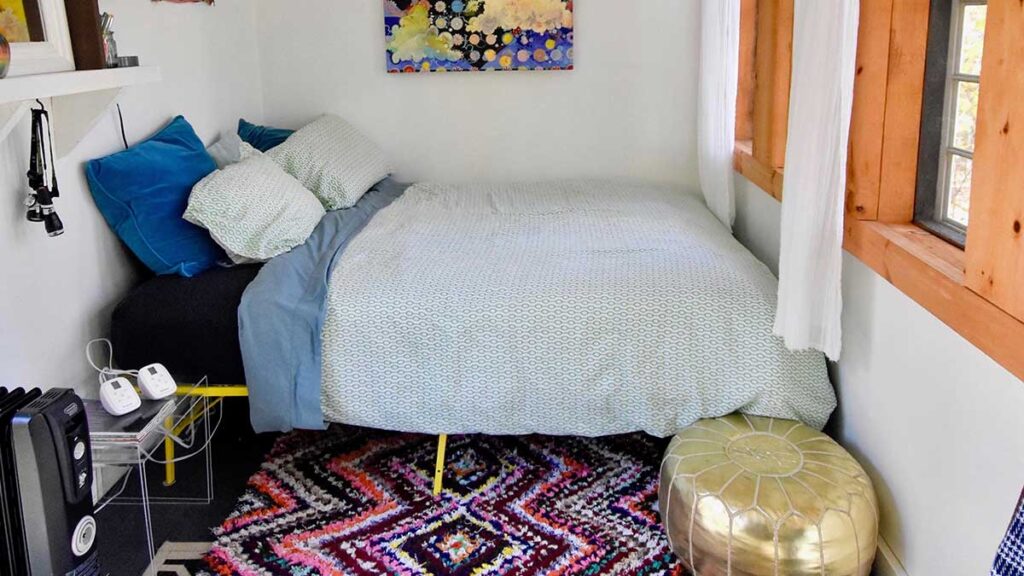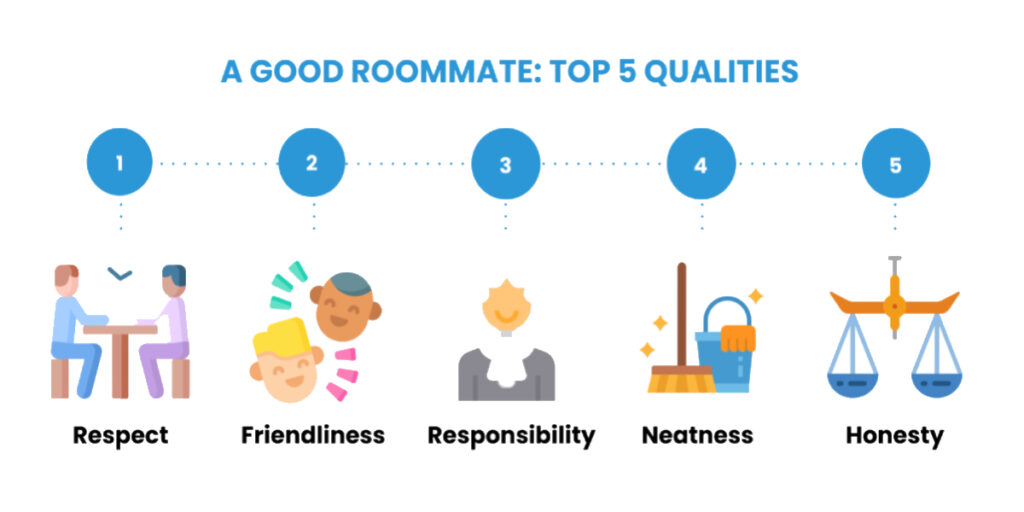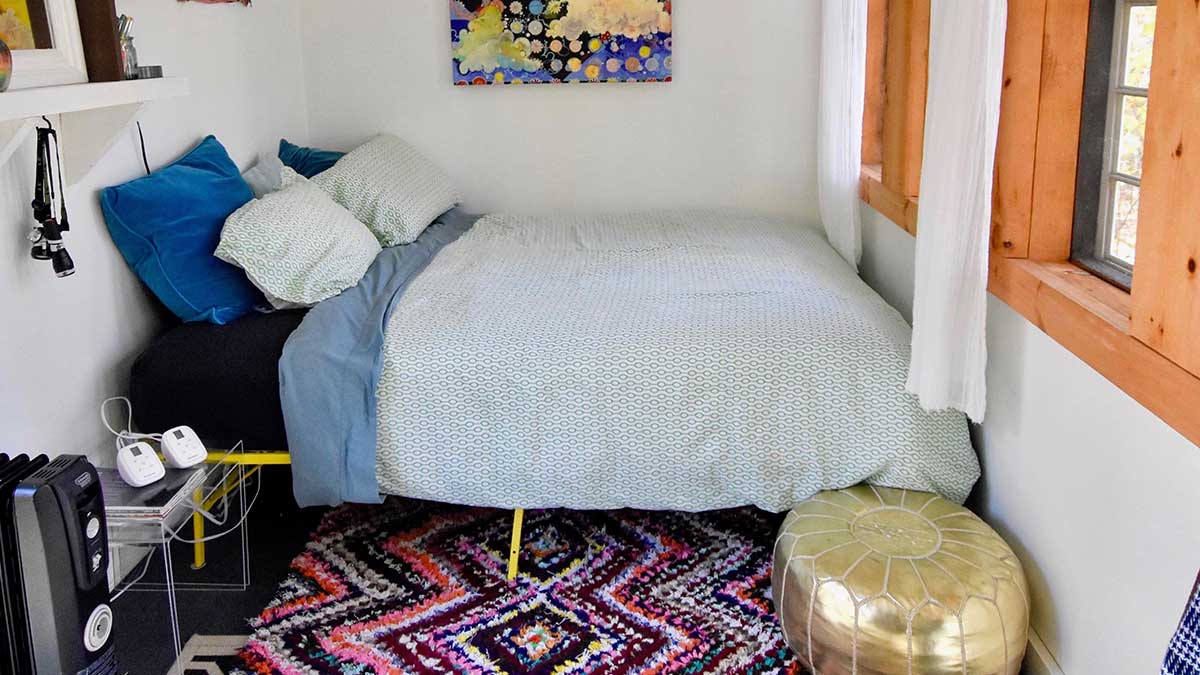Getting Along With Your Roommate
Living with a roommate can be an exciting yet challenging experience, especially for those entering college or a new living situation. If you’re a beginner in navigating the ins and outs of sharing living space with someone else, fear not! This article will provide you with practical advice and real-life examples on how to establish a positive relationship with your roommate. From effective communication strategies to setting boundaries and finding common ground, this beginner’s guide will equip you with the tools needed to foster a harmonious living environment with your new roommate. So, let’s embark on this journey together and ensure a smooth and enjoyable cohabitation experience!
Creating a Positive Living Environment
Living with a roommate can be a wonderful experience, filled with new friendships and shared memories. To ensure a harmonious living arrangement, it is essential to create a positive living environment right from the beginning. This can be achieved by setting ground rules, respecting personal space, and maintaining cleanliness.
Setting ground rules
One of the first steps to creating a positive living environment is establishing ground rules. This helps to set clear expectations and avoid potential conflicts. Sit down with your roommate and discuss important aspects such as quiet hours, study zones, and guest policies. By establishing these rules together, you can ensure that everyone’s needs and preferences are taken into consideration.
Respecting personal space
Respecting personal space is another crucial aspect of fostering a positive living environment. Everyone needs their own space to relax and recharge. It is important to communicate and establish boundaries regarding personal space, whether it’s sharing bedrooms or common areas. Clearly define which areas are shared and which are private to avoid any misunderstandings or discomfort.
Maintaining cleanliness
Maintaining cleanliness is essential to create a comfortable living environment. It is important to establish a cleaning routine and divide chores fairly. Regularly clean shared spaces such as the kitchen, bathroom, and living room together, and keep your personal belongings organized. By sharing the responsibility of cleanliness, you can prevent any tensions that might arise from a messy living space.
Communicating Effectively
Effective communication is key to a successful roommate relationship. By openly and honestly communicating with your roommate, you can prevent misunderstandings and address any issues that may arise.
Open and honest conversations
Promote open and honest conversations with your roommate to establish trust and understanding. Be approachable and encourage your roommate to share their thoughts and concerns freely. This will create an open dialogue where both parties feel heard and respected.
Active listening
In addition to expressing your own thoughts and concerns, it is equally important to practice active listening. When your roommate is speaking, make sure to give them your full attention. Show empathy and understanding, and avoid interrupting or dismissive behaviors. By actively listening, you can foster a supportive and respectful communication environment.
Resolving conflicts
Conflicts are bound to arise in any living situation, but how you handle them can make all the difference. When conflicts occur, it is important to address them in a calm and respectful manner. Make an effort to understand your roommate’s perspective and find mutually agreeable solutions. Seek compromises and be willing to make adjustments to ensure a harmonious living environment.

Establishing Boundaries
Respecting boundaries is crucial when living with a roommate. Each person has their own unique needs and preferences, and recognizing and respecting these boundaries is essential for a positive living experience.
Defining personal boundaries
Start by defining your own personal boundaries and communicate them clearly with your roommate. This includes aspects such as privacy, personal belongings, and shared responsibilities. Let your roommate know what those boundaries are so that they can also respect them.
Respecting roommate’s boundaries
Similarly, it is equally important to respect your roommate’s boundaries. Take the time to understand their preferences and adjust your behavior accordingly. If your roommate values quiet study time in the evenings, make an effort to minimize noise during those hours. Respecting each other’s boundaries is key to maintaining a healthy and positive living environment.
Staying mindful of noise levels
Noise can be a major source of frustration in a shared living space. Be mindful of noise levels, especially during quiet hours or when your roommate is studying or resting. If you have guests over or are playing music, be considerate and use headphones or keep the volume low. By being mindful of noise, you can foster a peaceful living environment where everyone feels respected.
Sharing Responsibilities
Coexisting in a shared living space requires sharing responsibilities. By dividing chores, managing shared expenses, and maintaining shared belongings, you can create a balanced and fair living arrangement.
Dividing chores
Dividing household chores is essential to maintain cleanliness and ensure fairness. Come up with a chore chart that clearly outlines each person’s responsibilities. Rotate the chores regularly to avoid resentment and boredom. By sharing the workload, you can lighten the burden on each individual and maintain a clean and organized living environment.
Managing shared expenses
Managing shared expenses is another crucial aspect of living with a roommate. Clearly establish how expenses will be split – whether it’s rent, utilities, or grocery bills. It is important to communicate openly and honestly about financial matters to ensure that everyone is on the same page. By effectively managing shared expenses, you can avoid conflicts and ensure a fair and transparent financial arrangement.
Maintaining shared belongings
In a shared living space, it’s important to establish guidelines for maintaining shared belongings. Discuss how items will be shared, whether it’s kitchen utensils, cleaning supplies, or entertainment systems. Set clear expectations for cleanliness and proper usage of shared items. By respecting shared belongings, you can foster a sense of trust and unity within the living environment.

Establishing a Routine
Establishing a routine can greatly contribute to a positive living environment. By scheduling bathroom time, creating study schedules, and setting quiet hours, you can ensure that everyone’s needs are met and conflicts are minimized.
Scheduling bathroom time
Sharing a bathroom can sometimes be a challenge, especially during busy mornings. To avoid unnecessary frustrations, discuss a bathroom schedule with your roommate. This will allow each person to have dedicated time to get ready without feeling rushed or inconvenienced.
Creating study schedules
If you or your roommate are students, creating study schedules can be beneficial. Discuss your individual study habits and preferred study times. This will help you both in finding a routine that allows for focused studying without disturbing each other.
Setting quiet hours
Quiet hours are essential to ensure a peaceful living environment, especially during evenings or early mornings. Discuss and establish quiet hours that work for both of you. During these designated hours, make an effort to keep noise levels to a minimum. This will create an environment conducive to relaxation, studying, and rest.
Being Respectful
Respecting your roommate and their needs is a fundamental aspect of creating a positive living environment. Avoid passive-aggressive behavior, maintain a positive attitude, and be mindful of cultural differences.
Avoiding passive-aggressive behavior
Passive-aggressive behavior can easily escalate conflicts and strain relationships. Instead of resorting to indirect communication or actions, strive to express your thoughts and concerns openly and directly. This will prevent misunderstandings and allow for effective problem-solving.
Maintaining a positive attitude
Maintaining a positive attitude can greatly contribute to a harmonious living environment. Be considerate, kind, and understanding towards your roommate. Encourage positivity and engage in small gestures of kindness, like leaving notes of appreciation or offering to help when needed. By cultivating a positive atmosphere, you can foster a healthy and enjoyable living environment.
Being mindful of cultural differences
If you and your roommate come from different cultural backgrounds, it’s important to be mindful of these differences. Learn about each other’s customs, traditions, and values. Be respectful and open-minded, and embrace the opportunity to celebrate diversity. By fostering an environment of cultural understanding and acceptance, you can create a vibrant and inclusive living space.

Handling Guest Policies
Discussing guest rules and respecting each other’s privacy are essential when it comes to handling guests in a shared living space.
Discussing guest rules
Talk openly with your roommate about guest rules and expectations. Determine how often guests can visit and for how long. Establish guidelines for overnight guests and whether prior notice is required. By discussing these rules, you can prevent any misunderstandings or discomfort when it comes to hosting guests.
Communicating about overnight guests
When having overnight guests, it is important to communicate with your roommate in advance. Respect their boundaries and ensure that your guest’s presence does not disrupt their privacy or routine. By being considerate and communicative, you can ensure a harmonious environment for everyone.
Respecting each other’s privacy
Respecting each other’s privacy is crucial in a shared living space. Knock before entering a roommate’s bedroom or shared spaces, even if the door is open. Avoid going through your roommate’s personal belongings without permission. By establishing and maintaining a culture of respect for privacy, you can foster a sense of trust and security.
Addressing Issues Promptly
In any living arrangement, it is important to address issues promptly to prevent them from growing into larger problems. By addressing problems early on, seeking mediation if needed, and being proactive in finding solutions, you can maintain a positive living environment.
Addressing problems early on
When issues arise, address them as soon as possible. Avoid letting resentment build up by openly discussing concerns and finding solutions together. By nipping problems in the bud, you can prevent them from escalating and maintain a healthy living environment.
Seeking mediation if needed
If you and your roommate are unable to resolve a conflict on your own, consider seeking mediation. Many colleges and universities offer mediation services to help roommates find common ground. A mediator can provide an unbiased perspective and facilitate a constructive conversation to reach a resolution.
Being proactive in finding solutions
Instead of waiting for problems to arise, be proactive in finding solutions. Regularly check in with your roommate to address any potential issues before they become major concerns. By taking a proactive approach, you can prevent conflicts and ensure a harmonious living environment.
/)
Understanding Different Lifestyles
In a shared living space, it’s important to accept and embrace different lifestyles. By accepting individual preferences, finding a middle ground, and embracing diversity, you can create a supportive and inclusive living environment.
Accepting individual preferences
Recognize that your roommate may have different preferences in terms of lifestyle, hobbies, or daily routines. Accept these differences and strive to be understanding and respectful. Create an environment where everyone feels free to express their individuality and pursue their interests.
Finding a middle ground
In some cases, finding a middle ground may be necessary to accommodate different lifestyles. For example, if one roommate enjoys listening to music late at night while the other prefers silence, consider using headphones as a compromise. By finding a balance between different preferences, you can create a living environment where everyone’s needs are met.
Embracing diversity
Living with a roommate provides an opportunity to embrace diversity and learn from one another. Take the time to appreciate and celebrate the differences in culture, background, and experiences. Engage in conversations that promote understanding and foster a culture of inclusivity and acceptance.
Enjoying Alone Time
While living with a roommate can be exciting, it is also important to carve out personal space and prioritize alone time. By doing so, you can engage in individual hobbies, focus on self-care, and recharge.
Carving out personal space
Carve out personal space within the shared living environment. Whether it’s a corner of the living room or a desk in your bedroom, having a designated space that is solely yours can provide a sense of privacy and solitude.
Engaging in individual hobbies
Living with a roommate doesn’t mean giving up your individual hobbies or interests. Make time for yourself to engage in activities that you enjoy, whether it’s reading, painting, or playing a musical instrument. By pursuing your own hobbies, you can maintain a sense of self and recharge your energy.
Taking time for self-care
In the midst of a busy schedule, it is crucial to prioritize self-care. Set aside time each day to relax, unwind, and take care of yourself. Whether it’s practicing mindfulness, going for a walk, or taking a bubble bath, self-care activities can help you recharge and maintain a positive mindset.
Creating a positive living environment with your roommate requires effort, understanding, and open communication. By setting ground rules, respecting personal space, sharing responsibilities, and embracing diversity, you can foster a harmonious living environment that contributes to a memorable and enjoyable experience. Remember, a positive roommate relationship can not only enhance your living experience but also provide valuable lessons in tolerance, empathy, and cooperation. So embrace the opportunity to build a strong and supportive connection with your roommate, and create a living space where both of you can thrive.


